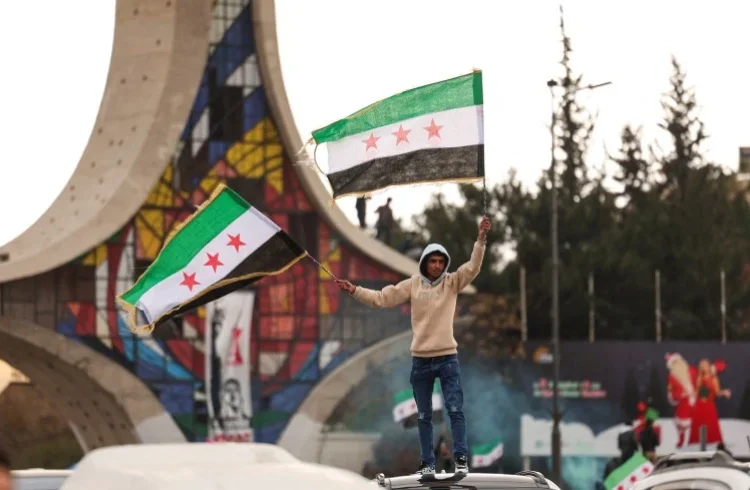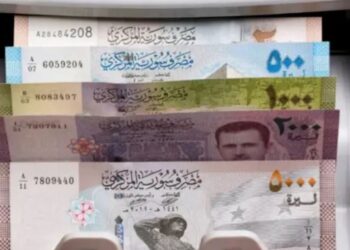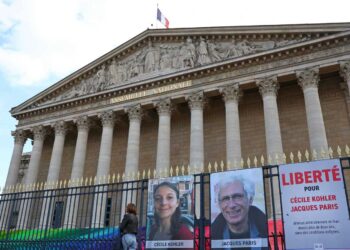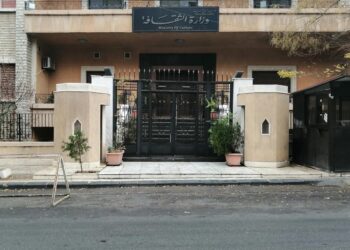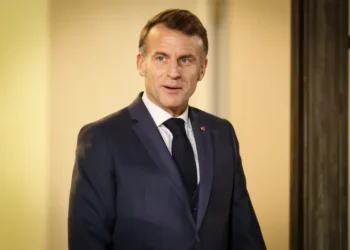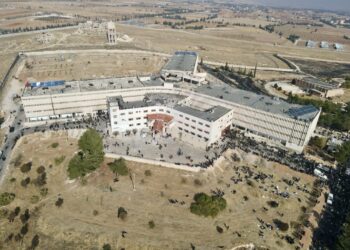Fadel Abdulghany
Political transition following internal armed conflicts represents a decisive turning point in any country’s path toward sustainable peace and democratic governance. In the Syrian case, this transitional phase takes on exceptional importance, given that it coincides with two interrelated challenges: rebuilding collapsed internal institutions and managing complex and multifaceted external threats, foremost among which are Israeli occupation and aggression.
This article argues that Syria’s success in confronting these external threats during the transition phase depends on the systematic strengthening of internal structures. Transformations that focus on a top-down approach and ignore inclusive consultative processes inevitably lead to institutional disintegration and continued instability.
In contrast, successful models show that pluralistic transitional institutions, broad political participation, and comprehensive protection of rights are the necessary foundations for state-building consensus and the consolidation of sustainable democracy. Political transformation in Syria cannot be reduced to a transfer of power or superficial institutional reform but must lead to a radical rethinking of the relationship between the state and society.
Pillars of Internal Consolidation
The theoretical framework for understanding political transformation in Syria is based on the integrated model for consolidating democracy developed by Lenz and Stepan, which identifies five interrelated areas for achieving sustainable democratic development: (civil society, political society, rule of law, government bureaucracy, institutional economy). These areas do not function as separate units, but rather as intertwined systems whose collective interaction determines the success of the post-conflict transition process.
The relationship between institutional design and the prevention of armed conflict recurrence emerges as a key factor in the success of the transition phase in Syria.
Studies drawn from the experiences of post-conflict countries show that carefully designed institutional structures are effective tools for managing internal challenges and countering external threats. They also indicate that institutions based on consensual decision-making mechanisms, supported by frameworks for participation and international oversight, contribute significantly to reducing the likelihood of renewed conflict. This conclusion is a direct critique of approaches that prioritize rapid change at the expense of inclusive participatory design.
Consensus-based decision-making mechanisms play a pivotal role in preventing societal divisions during transitional periods. Much of the literature on political transition suggests that power-sharing arrangements promote peace through three interrelated mechanisms:
- Providing security guarantees to formerly warring factions.
- Asserting the future political participation of these groups within the state structure.
- Establishing institutions that enable past grievances to be addressed constructively.
This integration contributes to transforming zero-sum conflict into constructive democratic competition, which strengthens the internal front’s ability to withstand external pressures without resorting to new authoritarianism or renewed violence.
Political participation as a democratic infrastructure
The political participation of all components of society is a central pillar for strengthening the internal front during the transitional phase in Syria. This participatory model must include active participation in institution building, policy formulation, and the formation of governance structures, because broad participation plays multiple roles: it gives institutions societal legitimacy, opens peaceful channels for expressing grievances, and strengthens the social cohesion necessary for consolidating democracy.
Channels for expressing grievances are a fundamental dimension of the structure of political participation. The existence of institutional mechanisms for conflict resolution—whether through parliaments, civil society organizations, or the judiciary—provides peaceful alternatives to violence in addressing political tensions.
The effectiveness of political participation is evident in its ability to transform institutions from imposed structures into genuine expressions of the public will. When transitional institutions create an inclusive environment for participation, they generate what is known as “input legitimacy,” or the sense that the structure of government reflects collective values and preferences. This legitimacy is necessary to ensure commitment to new democratic norms and prevent the return of parallel structures that could undermine the state in the face of external challenges.
Similarly, channels for expressing grievances are an essential dimension of political participation. The existence of institutional mechanisms for conflict resolution—whether through parliaments, civil society organizations, or the judiciary—provides peaceful alternatives to violence in addressing political tensions. These channels must be designed to be accessible to all segments of society, especially those that have been historically marginalized or affected by conflict. Here, the complementary relationship between institutional inclusiveness and popular participation becomes apparent: each reinforces the other and contributes to building a resilient democratic system capable of adapting to crises without collapsing.
Framework of Rights and Protection of Minorities
The protection of minority rights emerges as a cornerstone for preventing the outbreak of conflict and promoting stability during Syria’s transition. The literature on political transition identifies four basic categories of these rights that should be addressed directly: the right to existence, which protects groups from forced displacement or physical exclusion; the right to identity, which guarantees freedom of cultural, linguistic, and religious expression; the right to non-discrimination, which ensures equality before the law; and finally, the right to political and economic participation, which allows for effective engagement in governance and development processes.
The enshrinement of these rights in the constitution goes beyond a symbolic commitment, as it constitutes a solid legal basis for preventing the recurrence of conflict.
Experience shows that when minority rights are constitutionally protected and enforced through electoral systems, judicial institutions, and educational structures before tensions escalate, the likelihood of violent conflict decreases significantly.
This preventive function is doubly important in the Syrian context, where coexistence between diverse groups within a unified democratic structure is an unavoidable necessity, while at the same time preserving the specific identities of these groups.
The transformative potential of a rights-based approach is not limited to conflict prevention but extends to fundamentally reshaping the relationship between the state and society. Transitional justice literature emphasizes that rights frameworks should be victim-centered and promote community ownership of the transition process.
This approach works on multiple levels: it transforms victims from passive recipients to active rights holders; it contributes to reconciliation by acknowledging past violations; and it rebuilds state institutions that were the cause or instrument of ongoing rights violations.
Empowering individuals and communities to express themselves as rights holders restores human dignity and, in parallel, strengthens the legitimacy of the democratic system and social cohesion.
Mechanisms for sustainable transformation – social cohesion and pluralistic citizenry
Social cohesion is defined as the ability of a society to ensure the well-being of all its members, while reducing inequalities and avoiding polarization. This concept goes beyond mere superficial social harmony to form the necessary foundation that strengthens democratic institutions and allows them to flourish.
In the context of Syria’s transition, social cohesion is an urgent necessity for rebuilding a fractured society and transforming it into a unified political entity capable of democratic self-governance.
Mechanisms to reduce inequality and address polarization require approaches that encompass both structural and procedural aspects of governance. Studies indicate that reducing disparities can be achieved through multiple pathways:
- First, redistributive policies that address economic gaps.
- Second, inclusive institutional designs that ensure fair representation.
- Third, political symbolism that acknowledges historical injustices and promotes prospects for future reconciliation.
These mechanisms should work in parallel to prevent the divisions created by the conflict from becoming permanent political divisions. Avoiding polarization requires a focus on effective channels of communication, civic education, and the expansion of social networks that transcend sectarian or ideological identities.
In this context, the consolidation of pluralistic citizenship emerges as a fundamental goal of social cohesion policies. This advanced model of political belonging combines rights and responsibilities within a framework that integrates different identity groups into a unified civic fabric.
Pluralistic citizenship goes beyond the concept of “tolerance” to actively recognize diverse identities within a comprehensive legal and institutional framework. The literature shows that both democracy and social cohesion reinforce this type of citizenship through overlapping mechanisms that recognize diversity while simultaneously building a common political project.
This institutional formula for pluralistic citizenship is particularly necessary in the Syrian context, as it allows for the management of diversity, creating what political theorists call “unity in diversity.”
Constitutional design (in the Syrian case: the constitutional declaration governing Syria for five years)
Constitutional design in post-conflict societies is a rare opportunity to build shared visions for the future of the state and develop concrete roadmaps for consolidating democracy.
Studies agree that the process of drafting a constitution, as well as its content, has a fundamental impact on the outcome of the transition, as participatory processes lay more solid foundations for governance than top-down or exclusionary approaches. In the Syrian context, the drafting of the constitution should not be viewed as a mere legal procedure, but rather as an imaginative political act that redefines the foundations of coexistence in the new state.
The relationship between constitution-making and democratic practice is manifested through multiple mechanisms. Participatory constitution-making processes serve as “schools of democracy,” equipping citizens and elites with the skills of dialogue, negotiation, compromise, and productive disagreement, which are essential for building good governance.
The literature indicates that periods of transition often see the revision or redrafting of national constitutions to reflect new values, demonstrating that the pluralistic drafting of a constitution has a profound impact on the chances of a successful transition. When the constitutional process includes multiple voices and diverse perspectives, the resulting text embodies the complexity of the social fabric and provides a framework for its peaceful management.
Comprehensive constitutional frameworks play a role in strengthening the state’s ability to respond to external threats by building unified and flexible governance structures. Constitutions that balance unity and diversity, centralization and decentralization, stability and adaptability provide the state with the institutional tools necessary to face external challenges without compromising democratic principles.
The structural interdependence between political participation, the protection of rights, and social cohesion emerges as a key element in the success of post-conflict transitions, as these elements interact as integral components within a comprehensive transformation strategy.
The importance of this balance is evident in the Syrian case, where there is an urgent need to formulate clear constitutional provisions relating to emergency governance, oversight of the security sector and the army, and the separation of powers, in order to protect democratic institutions and enable effective responses to genuine security concerns.
Conclusion
A review of theoretical and empirical literature supports the hypothesis that Syria’s ability to counter external threats during the transition phase depends, in essence, on the systematic strengthening of the internal front through inclusive political participation and robust protection of rights.
Sustainable democratic transitions cannot be reduced to ending conflict or transferring power; rather, they require a radical reconstruction of the relationship between the state and society, based on institutional reform, social renewal, and comprehensive political integration.
The structural interdependence between political participation, the protection of rights, and social cohesion emerges as a key element in the success of post-conflict transitions, as these elements interact as complementary components within a comprehensive transition strategy: Political participation gives legitimacy to new institutions, paves the way for peaceful conflict resolution, and protects rights from the return of injustices, while social cohesion establishes a solid societal foundation for consolidating democracy.
This three-way interaction shows that any attempt to favor one element over another will weaken the whole process and reproduce institutional fragility and internal divisions.
The call to strengthen the internal to confront the external reflects an advanced understanding of the concept of security in post-conflict contexts. Traditional security models that focus on military capabilities or authoritarian control have proven ineffective in managing the complexities facing transitional societies.
Recent studies show that inclusive and resilient democratic institutions provide the most effective mechanisms for countering external threats without undermining democratic foundations or provoking internal resistance. This finding challenges the common assumption that democracy and security are mutually exclusive goals, revealing their vital overlap in the peacebuilding process.
In the Syrian context, this means that the most effective way to counter external threats begins at home: by building democratic resilience through processes that may be painful but are necessary, laying the foundations for sustainable peace, long-term security, and genuine human dignity.
The success of this path is the cornerstone of Syria’s future as a sovereign democratic state, capable of dealing with the complexities of the region and guaranteeing the rights and well-being of all its citizens.
